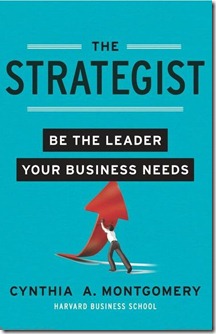Recently I was asked to lecture at the Walker College of Business at ASU on strategic thinking, an ability with which I was often credited during my now-concluded 40-year career as a community-destination marketing exec.
The presentation went well, but being a strategic thinker and explaining what a strategic thinker is are very different. I know from the Clifton StrengthsFinder that strategic thinking is one of four sets of talents used in leadership including other groupings for executing, influencing and relationship building.
Strategic thinking includes the talent for being analytical (challenging), using context (understanding the present by curating the past), being futuristic (having visions of what could be), ideation (ability to find connections between disparate phenomena), input (ability to deal with conflict), intellection (muscular brains), learner (continuously and never-ending improvement) and well, being strategic (ability to spot patterns and issues to create alternative ways to proceed).
Those tempted to cherry pick among these and 26 other areas of talent for a self-description, should really take the StrenghtsFinder survey for an objective assessment of their personal mix of talents. Having genuine “chops” is more than just who you say or think you are in your own wonderful self.
Another good resource on the role of strategic thinking in leadership is the new book by Harvard Business School professor Cynthia Montgomery published in May and entitled The Strategist – Be The Leader Your Business Needs excerpts of which were adapted for a paper just issued by McKinsey.
Montgomery, the Timken Professor of Business Administration at Harvard and an excellent researcher and writer, summarizes the unique value strategic leaders bring to organizations including:
- The strategist as meaning maker – “It is the leader – the strategist as meaning maker – who must make the vital choices that determine a company’s very identity.”
- The strategist as voice of reason – “A leader must serve as a voice of reason when a bold strategy to reshape an industry’s forces actually reflects indifference to them.”
- The strategist as operator – “A great strategy, in short, is not a dream or lofty idea, but rather a bridge between the economics of the market, the ideas at the core of a business, and action…the bridge must rest on a foundation of clarity and realism [data]…strategy or execution is a false dichotomy…”
Oh, by the way, if you know or have worked with me, you’re not surprised that three of my five more prominent talents according to StrengthFinder are in the areas of strategic thinking and one each in the areas of executing and influencing:
Strategic
Create alternative ways to proceed. Faced with any given scenario, can quickly spot the relevant patterns and issues.
Learner
A great desire to learn and to continuously improve.
Ideation
Able to find connections between seemingly disparate phenomena.
Activator
Can make things happen by turning thoughts into action.
Achiever
Great deal of stamina and work hard…great satisfaction from being busy and productive.
StrenghFinder reports go into much more depth including how to mitigate or finesse the impact of these strengths on people in your presence.
I’ve compared that back with an analysis Dr. Clifton conducted on me in 1986 as a young community-destination marketing exec when he was in the early stages of building a database of strengths necessary for various occupations. He reminded me of the results of that assessment in a letter of congratulations when I was recruited three years later to Durham, NC, where I still live in retirement, to jump-start the community’s destination marketing organization.
The terms he used had evolved by the time he developed StrengthsFinder twelve years later when the database had reached 100,000. But his 1986 assessment is very consistent with this later analysis using a database well past 10 million.
Dr. Clifton passed away nearly 10 years ago but his legacy continues to grow as does my appreciation for my time as an early beneficiary of his brilliant research which continues to help individuals identify their talents so that they’re able to find areas of endeavor where they are able to excel.
No comments:
Post a Comment